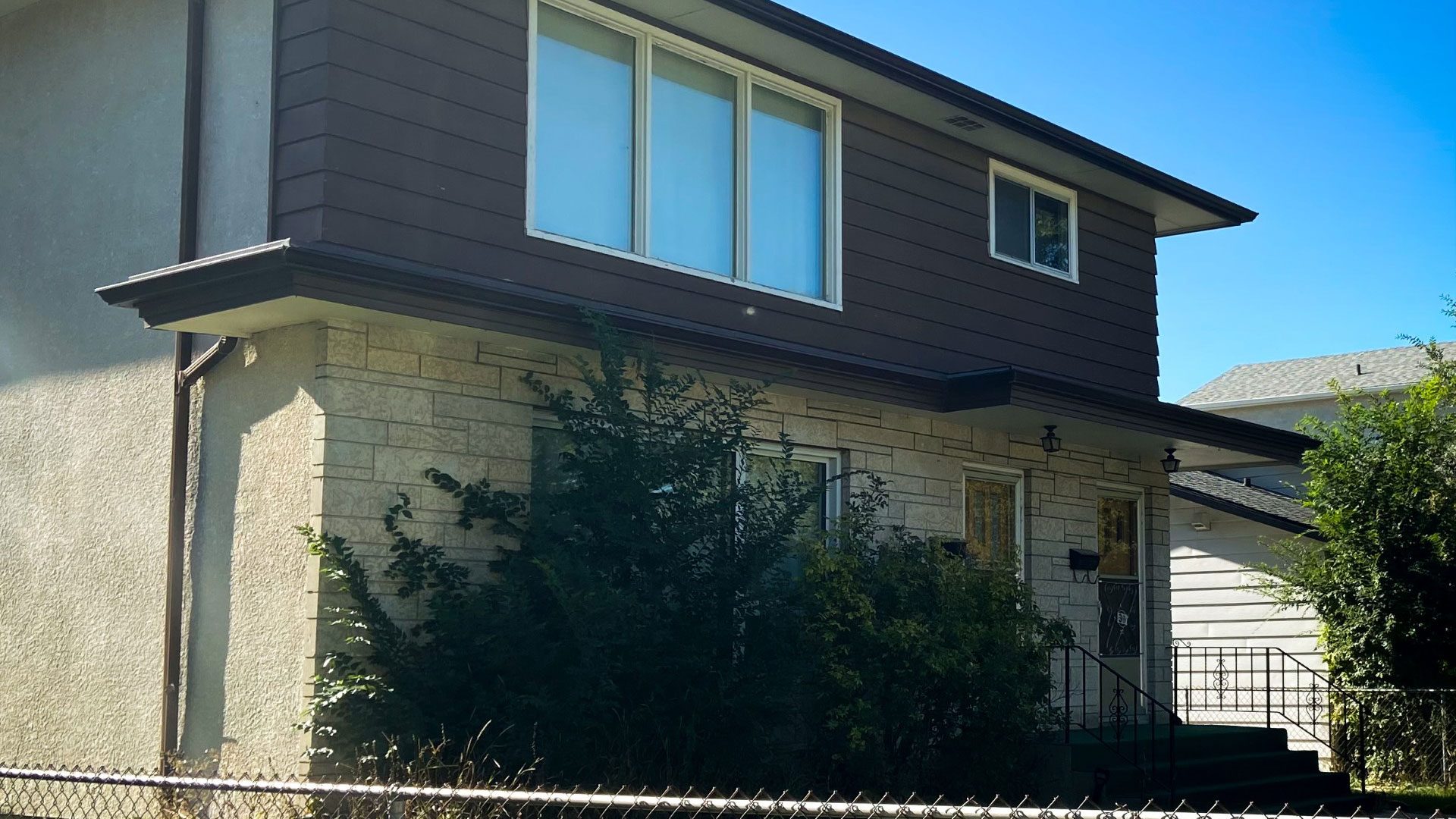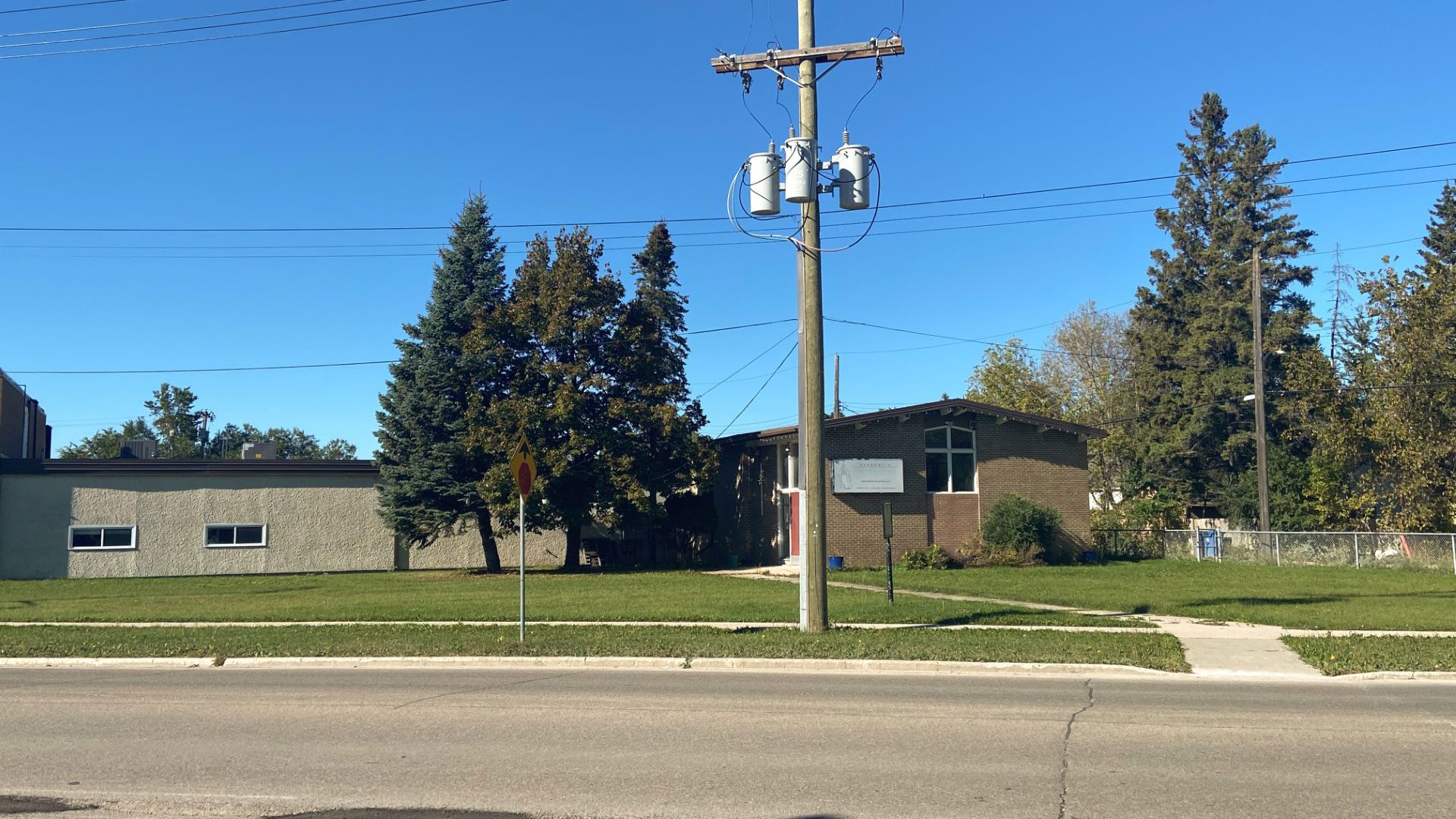Warning: This story references physical and sexual abuse.
In Winnipeg’s Old St. Vital neighbourhood, a dozen children are playing on the grounds of a childcare centre next to a Catholic parish.
From the outside, the two unassuming buildings look like any other school and church.
But for Andrew Carrier, they’re a haunting reminder of the abuse he endured at the former École Sainte-Marie day school as a young Métis boy.
The school was run by the Missionary Oblates from 1943-1967. It closed in 1974 after operating as a public school for several years.
‘I don’t want you to talk about this’
It happened, he remembers, in the fall of 1965.
During catechism, Carrier and his classmates were told to confess their sins.
“I had to confess my sins at the age of seven years old. The concept of a sin was beyond my knowledge at that time,” he said.
He remembers his teacher, a nun, becoming frustrated. She brought in the school’s principal, a priest, to talk to him.
“During that process where I had to repent and confess my sins, he [the priest] took me aside and in the changing room for the priests in the back of the church, [and] proceeded to sexually abuse me.”
His first instinct was to run away.
“I ran away from the priest at the time and went back to the school,” he said. “The grade two teacher had to clean me up and send me home.”
While attending École Sainte-Marie, Carrier lived in a duplex directly behind the school.
When he returned home that day, he told his mother what the priest did.
“I distinctly remember my mother reacting very angrily, and I thought she was angry at me,” he said. “She hit me because I was distraught. And she slapped me and she said, ‘je ne veux pas en entendre parler’ which means, ‘I don’t want you to talk about this’.”
That year, he failed grade two. Unable to deal with the trauma of what happened, and in fear of being revictimized, he said it felt impossible to concentrate.
Though he only attended École Sainte-Marie in grades one and two, Carrier’s experience at the former day school has impacted him throughout his life.
“That whole trauma has lasted with me since that very day,” he said.
Retracing a fractured past

It’s not clear how many Métis students attended federal and church-run day schools in Canada.
Despite being allowed to return home at the end of the day, their experiences often mirror those of residential school survivors.
While many Métis did attend residential schools, others were sent to day schools or provincial schools.
Métis scholar Tricia Logan said the federal government created a classification system to determine where Métis children should be sent.
“If they were living closer to a non-Indigenous community, or living like a farming, scrip land or farming life, then they would less likely be taken, according to the written classifications,” Logan said. “If they were living the quote, ‘the Indian mode of life’, they would be more likely to be taken.”
For survivors and their families, locating records can feel like a labyrinth. School administrators often manipulated records and left Métis off attendance lists, making some ineligible for settlement claims, Logan said.
“When Métis children or Métis survivors came to claim compensation, their attendance wasn’t recorded, or wasn’t recorded consistently or fairly,” she said. “So, the reflection of how Métis were treated inside the schools then rippled down to the records, the administration and legal cases.”
In fact, Carrier said the only proof he has of attending École Sainte-Marie is his student ID card.
That, and his memories.
Honouring day school survivors

Carrier is now the minister of Residential and Day Schools for the Manitoba Métis Federation (MMF).
He said he shares his experience and connects with other survivors.
The last federal day school in Canada closed in 2000. However, the trauma, he said, impacts survivors to this day.
“I’ve heard of attempted suicides or thoughts of suicides. I’ve heard a lot of depression,” Carrier said. “The trauma of surviving this type of abuse is with you for the rest of your life.”
When he became a father, Carrier’s unhealed day school wounds made it difficult to connect with his children.
“I was afraid to hug my boys, afraid to be close to them,” he said. “I have since learned…that children need to be loved, but in a healthy environment.”
Six decades on at the site of École Sainte-Marie, Carrier holds a sash created to honour Métis residential school, day school and sixties scoop survivors.
A black thread runs through the centre, serving as a reminder of the hardships they survived to be here today.
“We have to listen to the truth before we can look at the healing process,” he said. “And the truth is this, is that it happened under the watch of the Catholic church. It happened under the watch of my parents. It happened under the watch of a community. But more importantly, where were our medical and our legal systems protecting the families who did speak out at the time?”











